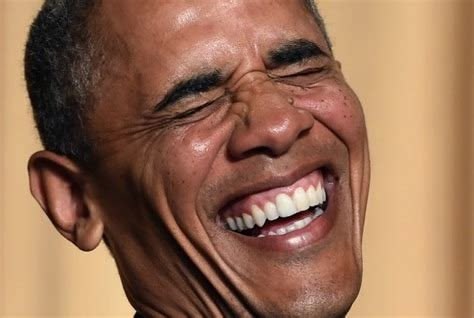Why the President’s tariff policy makes economic sense and will benefit US citizens
1. ✅ Tariff Revenue Increases Directly
Trump’s tariffs are essentially a tax on foreign goods:
• With broad 10%–60% tariffs across multiple sectors, the U.S. is now collecting record levels of revenue from imports.
• Estimated annual tariff revenue in 2025 is $300–$500 billion.
• This reduces the need for new taxes or borrowing, helping to stabilize federal finances.
Key takeaway: Tariffs are one of the few federal policies that raise revenue without taxing U.S. citizens directly.
⸻
2. ✅ Reindustrialization → Higher GNP
Tariffs protect U.S. industries, encouraging domestic manufacturing and reshoring, which leads to:
• Job growth in high-value sectors (steel, autos, electronics)
• A broader domestic supply chain
• More capital investment at home
If successful, this raises Gross National Product (GNP):
• GNP = GDP + net income from abroad
• If foreign companies build more plants in the U.S. to avoid tariffs, foreign-owned income becomes part of U.S. GNP.
• Domestic firms gain market share, leading to higher wages, productivity, and output.
Realistic projection: GNP could rise by 0.5–1% over 5 years if enough production is reshored.
⸻
3. ✅ Stronger Wage Base → Higher Income Tax Revenue
Rebuilding industry at home could:
• Boost blue-collar and mid-skill job wages
• Create a more balanced income distribution, helping labor rather than just capital
• Increase taxable wages and salaries
The result: More income tax revenue, especially from workers and small businesses.
⸻
4. ✅ Trade Deficit Shrinks → Measured GDP Improves
In GDP accounting:
• Imports are subtracted
• So if tariffs reduce imports (which they have), GDP rises on paper, even before any real production increase
Even critics admit that tariffs can cause a GDP bump, especially when domestic producers fill the gap.
⸻
5. ✅ Negotiating Leverage → Better Trade Terms
Trump’s team argues that:
• Tariffs are a tool to force better trade deals
• Other countries will lower their own tariffs/subsidies in response
If successful, this could lead to:
• Fairer trade conditions
• U.S. exports becoming more competitive
• Long-run growth in net exports, boosting both GDP and GNP
⸻
🧮 Realistic Scenario: 5-Year Economic Impact (Stylized Example)
🚨 Important Assumptions
This outcome depends on:
• U.S. industries using protection wisely to modernize
• Limited retaliation from trade partners
• Domestic supply chains scaling up quickly
• Consumers absorbing slightly higher prices without cutting demand sharply in exchange for lower income taxes, more secure Social Security and Medicare and steady reduction in the deficit reducing interest payments and providing more dollars to directly benefit US citizens.
Trump’s tariffs are essentially a tax on foreign goods:
• With broad 10%–60% tariffs across multiple sectors, the U.S. is now collecting record levels of revenue from imports.
• Estimated annual tariff revenue in 2025 is $300–$500 billion.
• This reduces the need for new taxes or borrowing, helping to stabilize federal finances.
Key takeaway: Tariffs are one of the few federal policies that raise revenue without taxing U.S. citizens directly.
⸻
2. ✅ Reindustrialization → Higher GNP
Tariffs protect U.S. industries, encouraging domestic manufacturing and reshoring, which leads to:
• Job growth in high-value sectors (steel, autos, electronics)
• A broader domestic supply chain
• More capital investment at home
If successful, this raises Gross National Product (GNP):
• GNP = GDP + net income from abroad
• If foreign companies build more plants in the U.S. to avoid tariffs, foreign-owned income becomes part of U.S. GNP.
• Domestic firms gain market share, leading to higher wages, productivity, and output.
Realistic projection: GNP could rise by 0.5–1% over 5 years if enough production is reshored.
⸻
3. ✅ Stronger Wage Base → Higher Income Tax Revenue
Rebuilding industry at home could:
• Boost blue-collar and mid-skill job wages
• Create a more balanced income distribution, helping labor rather than just capital
• Increase taxable wages and salaries
The result: More income tax revenue, especially from workers and small businesses.
⸻
4. ✅ Trade Deficit Shrinks → Measured GDP Improves
In GDP accounting:
• Imports are subtracted
• So if tariffs reduce imports (which they have), GDP rises on paper, even before any real production increase
Even critics admit that tariffs can cause a GDP bump, especially when domestic producers fill the gap.
⸻
5. ✅ Negotiating Leverage → Better Trade Terms
Trump’s team argues that:
• Tariffs are a tool to force better trade deals
• Other countries will lower their own tariffs/subsidies in response
If successful, this could lead to:
• Fairer trade conditions
• U.S. exports becoming more competitive
• Long-run growth in net exports, boosting both GDP and GNP
⸻
🧮 Realistic Scenario: 5-Year Economic Impact (Stylized Example)
🚨 Important Assumptions
This outcome depends on:
• U.S. industries using protection wisely to modernize
• Limited retaliation from trade partners
• Domestic supply chains scaling up quickly
• Consumers absorbing slightly higher prices without cutting demand sharply in exchange for lower income taxes, more secure Social Security and Medicare and steady reduction in the deficit reducing interest payments and providing more dollars to directly benefit US citizens.







